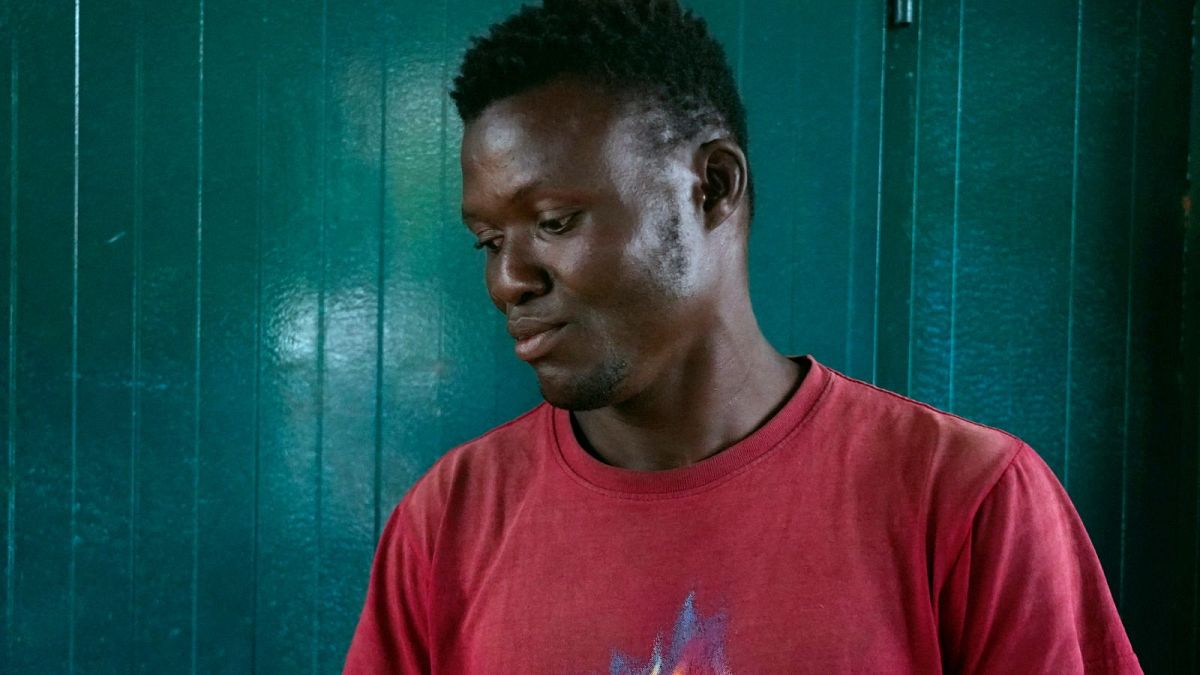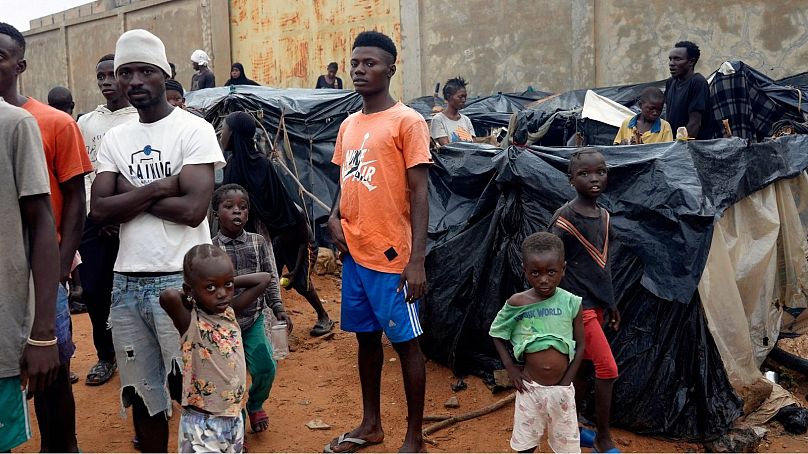Sahr John Yambasu watched people die at sea and abandoned his journey but is among thousands who can't return home as borders closed following the coup in Niger.
After three months of crossing the desert and then watching other migrants die at sea in a failed attempt to reach Europe, Sahr John Yambasu gave up on getting across the Mediterranean and decided to go back home.
The 29-year-old from Sierra Leone reached Niger in June on his return journey, but United Nations officials said he had to wait for packed migrant centres to empty before he could be repatriated.
Then soldiers toppled Niger's president a few weeks later, which led to the borders being closed.
Yambasu was trapped.
He is one of nearly 7,000 discouraged migrants trying to get home to Africa that the UN estimates have been stranded in Niger since late July when members of the presidential guard overthrew the country's democratically elected president, Mohamad Bazoum.
Niger's junta closed its airspace and nearby countries closed border crossings as part of economic and travel sanctions, making it hard for people to leave.
Niger is an important route both for Africans trying to reach Libya as a jumping off spot to cross the Mediterranean to Europe and those who are returning to their homes with help from the United Nations.
Yambasu and others like him are unsure when they will be able to leave.
“I feel sad because it’s a country that I don’t belong to. It’s not easy,” Yambasu said.
He said he left Sierra Leone in June because of political unrest and was hoping to reach Germany. He got rides across the region until arriving in Libya, where he boarded a boat with some 200 other migrants.
The boat spent days at sea, with some people dying onboard before it was intercepted by Libya's coast guard and taken back to shore.
That was enough for him and he headed for home. Helped by aid groups, he made it as far as Niger but has been unable to go farther.
UN officials estimate about 1,800 in Yambasu's position are living on Niger's streets because centres run by the International Organisation for Migration are too crowded to take in more. The centres hold about 5,000 people trying to get home.
The UN agency had been assisting approximately 1,250 people a month return to their countries this year. But the closure of borders and airspace has forced it to temporarily suspend returns.
“This situation poses challenges for migrants as migrants staying in these centres may experience heightened stress and uncertainty with limited prospects for voluntary return and already crowded facilities,” Paola Pace, acting interim chief of mission for the agency in Niger, said.
Pace worries the stall in the transiting of Africans seeking to get home could increase exploitation of vulnerable people by traffickers and smugglers who normally focus on individuals trying to migrate to Europe.
The shelters are helping people who are making their way home, rather than would-be migrants heading to Europe.
COOPI, an Italian aid group that provides shelter for migrants in Niger's northern town of Assamakka near the border with Algeria and assists the UN in hosting people, has warned it will run out of food and water if the borders don't open soon.
Not only are migrants unable to leave but aid groups are unable to bring in food and medical supplies.
Morena Zucchelli, head of mission for COOPI in Niger, said it has only enough food stocks to last until the end of August and its funding will run out at the end of September.
Before the coup, Niger worked with the European Union in trying to slow the flow of migrants north to Libya and Algeria.
It’s unclear how cooperative the new military leaders will be with the EU, which has now frozen assistance to Niger. Anitta Hipper, a spokeswoman for the European Commission, could not say Tuesday whether cooperation on migration had been suspended, saying only that the EU would continue to “monitor and evaluate the situation.”
Momo Kmulbah is another of those trying to get back home, for him in Liberia. He says many of them have nowhere to turn for help.
The 36-year-old has been sleeping on the pavement in Niger's capital, Niamey, with his two daughters and wife since June and they beg for food.
“Our children don’t have food to eat. I feel confused when I wake up in the morning,” Kmulbah said.

